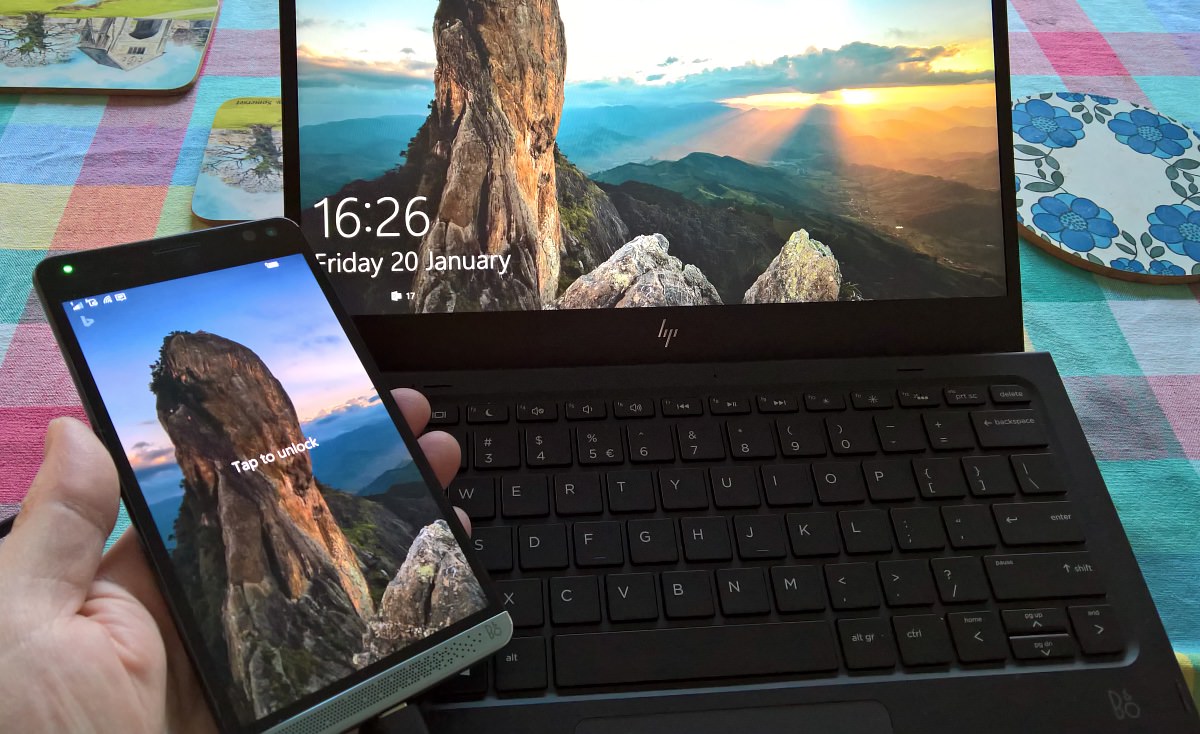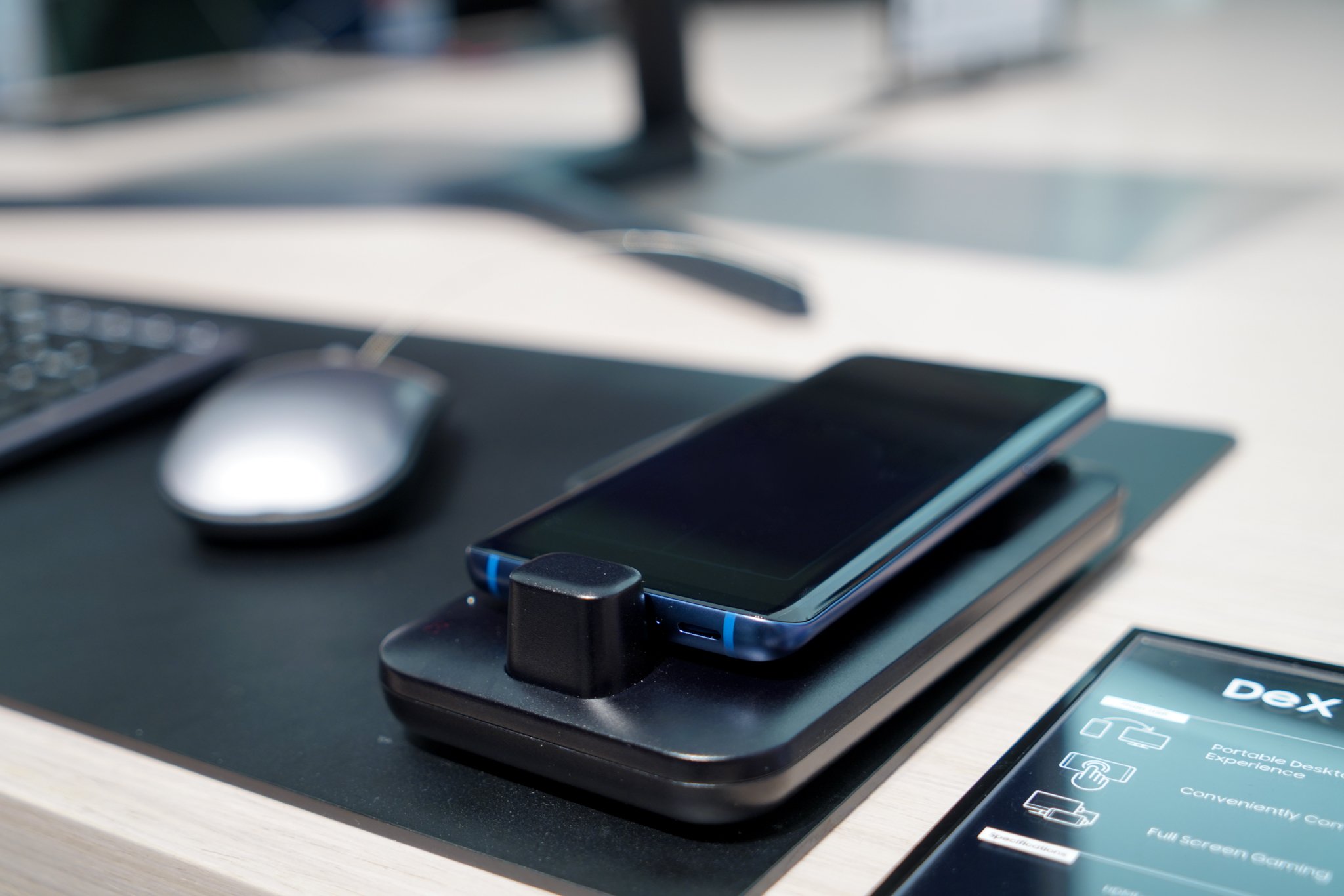I covered the HP Elite x3 Lap Dock extensively here on AAWP, of course, pronouncing it well made on the whole and a great idea, but also too buggy and way too expensive. As a result, HP lost interest in the idea in 2017 and the Lap Dock never really went anywhere.
But, according to Richard, the 2016 HP Lap Dock for the Elite x3 is/was still more effective in the real world than the likes of Samsung's new DeX 2.0:
In 2016 HP produced a portfolio with the Elite x3 that showed how to do this. And I'm a little surprised that it's still the best implementation so far of turning a phone into a PC. Samsung and anyone else trying this need to take a look at what late-2016 Windows 10 Mobile had to offer.
Samsung DeX 2.0
To be clear up front, I'm not comparing the software here, at all. Comparing a now out to pasture OS with Samsung's latest creation based on Android is both unfair and ridiculous. This is all about the hardware.
So, what did Samsung do for its second attempt at turning a Galaxy into a PC? It's all focused on the dock, and this latest version turns it into something useful, rather than just a cradle for the phone.
It's now a flat rectangle that the phone lies in. Now, just as you can use a Windows phone with Continuum support as a wireless trackpad, so too you can move your finger around on the Galaxy S9 in the same way. It's honestly a neat improvement and shows that Samsung is at least putting thought into improving the user experience.
But there's one thing that's still the same: It's a desktop experience.This notion of the phone in your pocket also being a capable PC is an exciting one. Anyone who has followed Windows phones in the last few years has already experienced it. But one thing that never gelled with me with Continuum was that it always seemed to be a desktop experience. When the Lumia 950 phones launched, they were accompanied by a desktop dock to turn the phone into a desktop PC. Indeed, the Elite x3 even, the focus here, shipped with a desktop dock.
I used to travel a lot for work in a past life, spending at least two or three nights a week in a hotel with a laptop and working on remote sites. Plugging a phone into a TV in a hotel to use like a PC is not practical. For starters, to get real work done you need a keyboard and a mouse. There's also the fact that in some hotels you just can't connect anything to the TV. See my trials and tribulations using Continuum in Hong Kong and China for an example.
That's just one example, but it's one I've heard a lot and seen a fair deal of on social media in the past week or so as well. If you think Samsung DeX can be your mobile PC, I've got bad news for you. There are scenarios you could see docking your phone in a remote location and using it like your own portable PC, but unless a company had a serious enterprise push on these, presumably there would be an actual PC you can use there.
(Richard goes on to chat about the closest thing the Android currently has to the HP solution, the Razer Project Linda, which I covered here.)

So yes, all the usual objections to Continuum apply just as much to Samsung's 2018 solution - yes, you can use the phone as a trackpad (as with Continuum), but you still need a Bluetooth or wired keyboard and you still need an HDMI/DLNA monitor to plug/connect the whole shooting match into.
A Lap Dock solution seems attractive, but for an Android solution, as here, you'd have the hardware of a laptop with only a bastardised desktop experience that wasn't a 'proper PC'. With the HP Lap Dock, you at least had your standard Windows UWP applications, even if x86 apps were still a no-go.
In short, the new Samsung DeX 2.0 doesn't really advance the whole concept much. Manufacturer after manufacturer tries this concept, on platform after platform, and it's never looked close to taking off.
Could it have? Yes, if the HP Lap Dock (or clones thereof) had come out at - say - £249, i.e. cheaper than decent laptops. Given that there's no main processor or RAM or storage, I really can't see why HP had set their prices so high. £500+? That was always going to be a tough sell. I still say that they should have priced the Elite x3 with Lap Dock at £699 for the two, for example.
Or has the whole idea's time passed now? We have Cloud services that deliver (and sync) data to any device, regardless of OS and form factor. Why have a phone that turns into a laptop when you can have a signed-in, fully synced experience on an actual laptop for a similar price?
No doubt some of these thoughts will come back in our coverage of Surface Mobile, or whatever Andromeda surfaces as...

